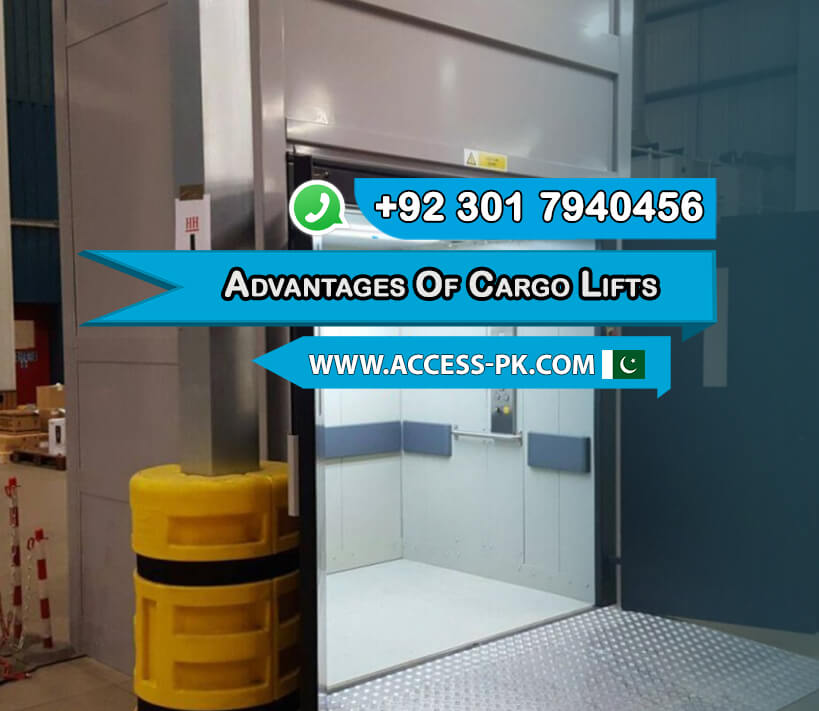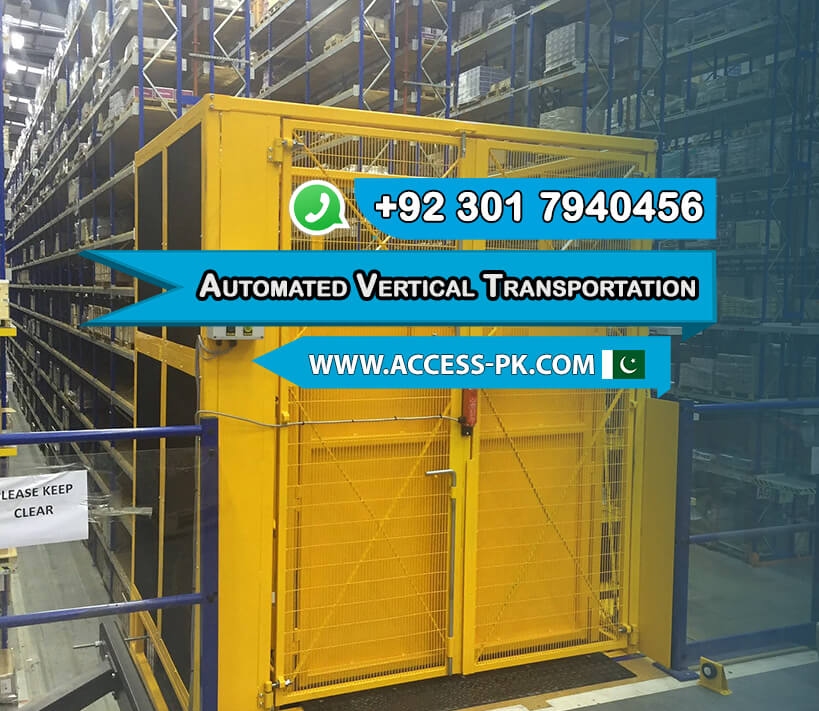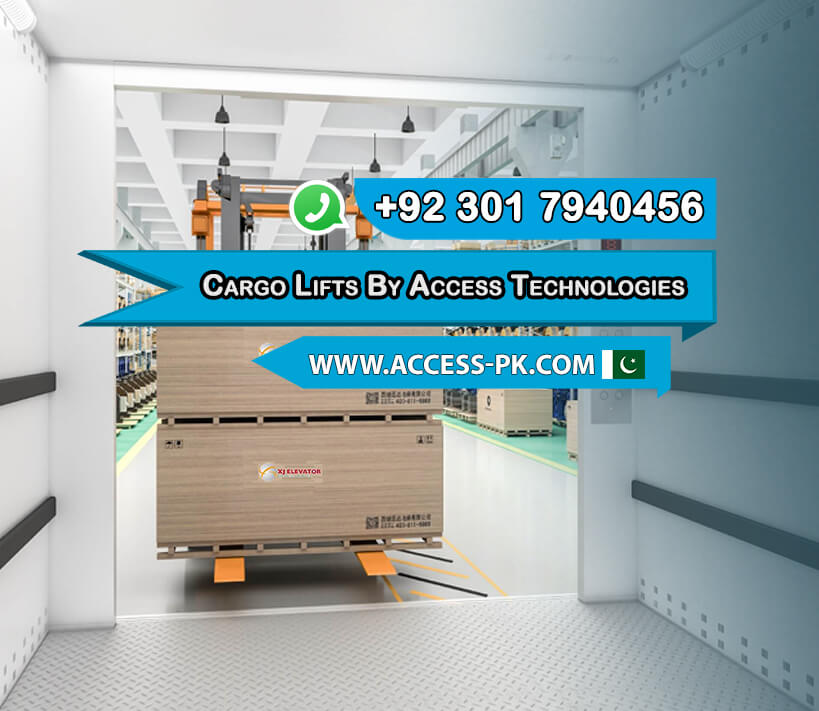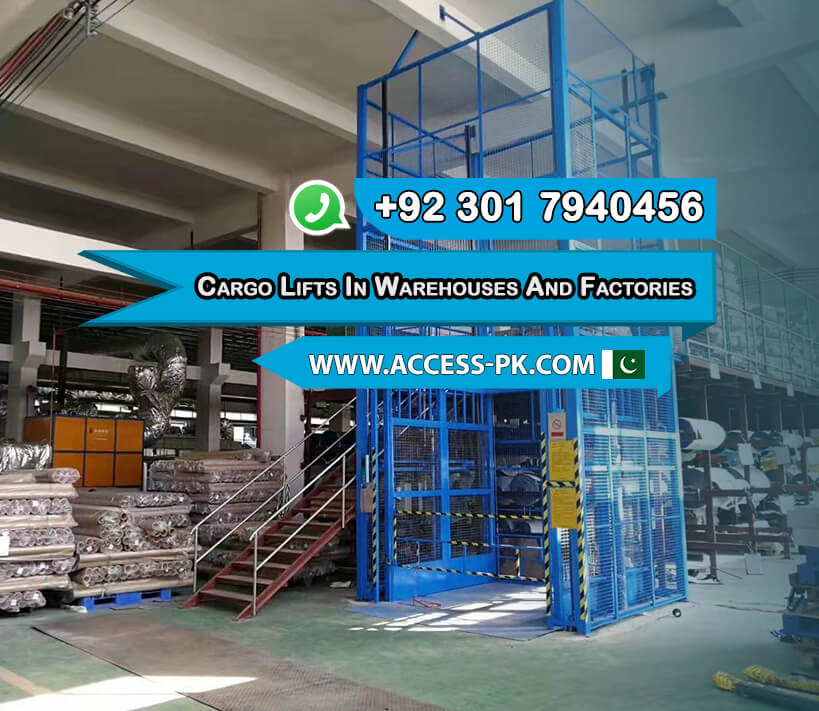Access Technologies, owned by Imran Rafi, specializes in enhancing warehouse and factory logistics through innovative cargo lift solutions. Cargo lifts in warehouses and factories revolutionize operations by automating vertical transportation, thereby boosting efficiency. Goods are moved swiftly and safely, reducing manual handling time and minimizing the risk of workplace injuries. This efficiency leads to streamlined workflows and improved productivity, essential for competitive industrial environments.
Implementing cargo lifts optimizes space utilization within warehouses and factories. By utilizing vertical storage solutions, businesses maximize their storage capacity without expanding their physical footprint. This not only enhances operational efficiency but also supports just-in-time inventory management practices. Additionally, cargo lifts can be customized to fit specific layout requirements, ensuring seamless integration into existing infrastructure.
Safety is paramount in industrial settings, and cargo lifts play a crucial role in elevating workplace safety standards. They mitigate risks associated with manual handling, such as musculoskeletal injuries and accidents. Advanced safety features like emergency stop mechanisms and interlocking safety doors ensure secure operations. By adhering to regulatory standards and providing comprehensive operator training, warehouses and factories uphold a culture of safety. Investing in cargo lifts not only enhances safety but also demonstrates a commitment to employee well-being and regulatory compliance.
Exploring the Advantages of Implementing Cargo Lifts in Warehouses

Cargo lifts in warehouses and factories streamline operations and enhance efficiency, making them indispensable tools in modern industrial settings. These lifts automate vertical transportation of goods, significantly reducing manual handling and optimizing workflow processes. By integrating with existing warehouse management systems, cargo lifts facilitate real-time inventory management and operational coordination. They expedite the handling of bulk goods, ensuring swift and efficient movement across different warehouse levels. The implementation of cargo lifts not only maximizes space utilization but also enhances safety by minimizing workplace hazards associated with manual lifting.
Streamlining Workflow Processes
Cargo lifts streamline warehouse operations by automating the vertical movement of goods. This automation reduces dependency on manual labor, allowing workers to focus on more strategic tasks. Streamlined workflow processes improve productivity and operational efficiency, ensuring timely handling and distribution of goods throughout the facility. Transition words such as “furthermore” and “in addition” emphasize the efficiency gained by cargo lifts.
Integration with Existing Systems
Cargo lifts seamlessly integrate with existing warehouse management systems (WMS), enhancing operational efficiency and accuracy. By synchronizing with WMS, cargo lifts ensure that inventory levels are updated in real-time as goods are transported vertically. This integration optimizes inventory control and reduces the likelihood of stockouts or overstock situations. Moreover, the compatibility of cargo lifts with various WMS platforms enables warehouses to leverage their existing technology investments effectively. Transition words such as “meanwhile” and “consequently” highlight the advantage of these cargo lifts.
Expedited Handling of Bulk Goods
Cargo lifts expedite the handling of bulk goods within warehouses, facilitating efficient movement between different levels. This capability is crucial for industries where rapid turnover and distribution of goods are essential for meeting customer demands. By reducing the time and effort required for manual loading and unloading, cargo lifts enhance operational throughput and responsiveness. Moreover, the ability to handle bulk items efficiently supports just-in-time (JIT) inventory management practices, minimizing storage costs and improving inventory turnover rates. Transition words such as “as a result” and “thus” emphasize the operational efficiencies gained through the use of these cargo lifts.
Enhancing Productivity Through Automated Vertical Transportation

Automated vertical transportation with cargo lifts in warehouses and factories significantly enhances productivity by optimizing workflow processes. These lifts streamline the movement of goods between different levels of the facility, reducing the reliance on manual labor and minimizing operational downtime. By automating repetitive tasks such as loading and unloading, cargo lifts ensure consistent and efficient handling of materials. This efficiency not only accelerates the pace of operations but also improves overall throughput, allowing businesses to meet customer demands more effectively. Furthermore, the integration of cargo lifts with advanced control systems enables real-time monitoring and adjustment of transportation schedules, further enhancing productivity and operational flexibility.
Moreover, the use of cargo lifts enhances workplace safety by reducing the risk of injuries associated with manual material handling. By automating the vertical movement of goods, these lifts minimize physical strain on workers and mitigate the potential for accidents such as slips or falls. This proactive approach to safety not only protects employees but also fosters a positive work environment, boosting morale and reducing absenteeism. Additionally, cargo lifts contribute to sustainability efforts by optimizing space utilization and reducing the overall carbon footprint of warehouse operations. By improving productivity while prioritizing safety and sustainability, cargo lifts in warehouses and factories play a pivotal role in driving operational excellence and long-term business success.
Cargo Lifts in Warehouses and Factories By Access Technologies

Access Technologies, a company owned by Imran Rafi, specializes in providing innovative cargo lift solutions tailored for warehouses and factories. These cargo lifts are designed to enhance operational efficiency and safety while maximizing space utilization. By integrating state-of-the-art technology with robust engineering, Access Technologies ensures that their cargo lifts meet the rigorous demands of modern industrial environments. Their solutions not only streamline logistics operations but also support just-in-time inventory management practices, enabling businesses to optimize inventory turnover and minimize storage costs effectively.
Furthermore, Access Technologies emphasizes the importance of customization and scalability in their cargo lift solutions. Whether adapting to specific warehouse layouts or accommodating varying load capacities, their lifts are engineered to deliver reliable performance and durability. The company’s commitment to quality and customer satisfaction is evident in their comprehensive support services, including installation, maintenance, and ongoing technical support. By partnering with Access Technologies for cargo lift solutions, warehouses and factories can enhance their operational capabilities, improve workplace efficiency, and achieve sustainable growth in today’s competitive market.
Elevating Workplace Safety Standards with Cargo Lifts

Cargo lifts in warehouses and factories play a crucial role in elevating workplace safety standards through various mechanisms aimed at reducing physical strain, preventing accidents, and enhancing ergonomic practices. These lifts are designed to automate the vertical transportation of goods, thereby minimizing the need for manual lifting and carrying, which often leads to physical strain and musculoskeletal injuries among workers. By reducing physical strain, cargo lifts contribute to a healthier work environment, ensuring that employees can perform their tasks efficiently and safely.
Reducing Physical Strain
Cargo lifts alleviate physical strain on warehouse and factory workers by eliminating the need for manual lifting of heavy or bulky items. This reduction in physical exertion helps prevent musculoskeletal disorders and injuries, promoting long-term employee well-being. Workers can focus on more complex tasks that require their expertise, thereby improving overall productivity and morale within the workplace.
Preventing Accidents
Cargo lifts contribute significantly to accident prevention in industrial settings. By providing a controlled and stable platform for transporting goods vertically, these lifts reduce the risk of accidents such as slips, trips, and falls that are common during manual handling activities. Safety features such as automatic door interlocks and emergency stop mechanisms further enhance accident prevention by ensuring safe operation at all times.
Enhancing Ergonomic Practices
Cargo lifts enhance ergonomic practices by facilitating safe and comfortable handling of materials. Workers can operate cargo lifts with minimal physical effort, reducing the strain on their bodies and minimizing the risk of repetitive strain injuries. This ergonomic advantage not only improves worker comfort but also enhances overall efficiency in warehouse and factory operations. By incorporating cargo lifts into their facilities, warehouses and factories not only improve operational efficiency but also prioritize the safety and well-being of their workforce. The implementation of these lifts underscores a commitment to maintaining high workplace safety standards, complying with regulatory requirements, and fostering a positive work environment where employees can thrive.



